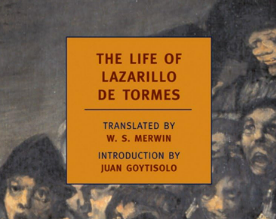Chapter XV: How Lazaro Became a Hermit
byChapter XV: How Lazaro Became a Hermit begins with Lazaro in a moment of profound physical and emotional exhaustion. His body aches from the recent punishment, and he sits helplessly at the church steps, silently observing those who pass him by. In this state of vulnerability, he begins to question the balance between effort and outcome, realizing that determination alone may not determine one’s fate. Instead, some unseen providence—or perhaps sheer luck—must play a role in lifting certain individuals above hardship. This introspective pause is interrupted by a figure of quiet compassion: a hermit who listens to Lazaro’s story and, moved by its rawness, offers him shelter and a new way of life.
The hermit’s abode is modest but well-kept, a small structure nestled beside a flourishing garden and shielded from the chaos of the world. Within this quiet refuge, Lazaro experiences, for the first time in years, stability. Meals are simple, and days pass without fear or desperation. The hermit introduces him to a lifestyle shaped by moderation and spiritual rhythm—one that balances prayer, rest, and work. It’s a life so unlike Lazaro’s past that he quickly becomes enamored by its gentle cadence. He learns to appreciate silence, to value time, and to recognize that peace often comes not from possessions, but from intention and discipline.
This calm, however, is short-lived. One evening, after a hearty meal shared in laughter, the hermit solemnly declares his time has come. The announcement is so sudden that Lazaro can scarcely believe it, but he doesn’t waste a moment. With quick thinking, he calls upon local shepherds to witness what follows. The hermit, perhaps out of gratitude or trust, repeatedly affirms that Lazaro should inherit the hermitage and everything in it. His death, though shocking, seems eerily well-timed—raising unspoken questions about fate’s hand in Lazaro’s path once again. Still, the transfer of ownership is secured, not by force, but by words and witnesses.
Left alone in the quiet stone house, Lazaro begins to explore what is now his. Behind the kitchen and beneath loose floorboards, he finds barrels of preserved food, dried herbs, and—tucked away with careful secrecy—a bag of coins. This unexpected wealth brings him both relief and caution. He knows that fortune is never permanent, yet he allows himself to hope that perhaps, this time, the winds of life might finally favor him. Taking on the role of the hermit, Lazaro fashions himself as a caretaker not just of a place, but of a legacy. He shaves less frequently, speaks with humility, and welcomes visitors with a blend of solemnity and charm.
The townsfolk are skeptical at first. Lazaro’s youthful face and absence of a traditional beard draw mild ridicule from some. But his dedication and thoughtful manner win many over. People begin to see past his appearance, and more importantly, they appreciate the peace that seems to surround the hermitage once again. He becomes the embodiment of quiet transformation—a man reborn not through riches alone, but through reflection and restraint. Even as whispers arise about the timing of the old hermit’s death, none can deny that Lazaro has brought new life to the place.
In moments of solitude, Lazaro ponders the strange alignment of events. The hermitage is dedicated to Saint Lazarus, the very figure after whom he was named. Was this coincidence or divine orchestration? The question lingers in his mind, not as a burden but as a gentle reassurance. Perhaps he was meant to arrive here, after all the wandering and pain. The calmness of his days now feels earned—not by force or scheming, but by enduring long enough for serenity to find him.
What stands out in this chapter is how deeply it comments on the illusion of control. Lazaro’s journey teaches that life often moves beyond our grasp, shaped by circumstances we never chose. Still, within that chaos, choices matter. The decision to listen, to adapt, and to act when opportunity presents itself defines Lazaro’s transformation. Readers are reminded that peace does not simply arrive—it must be received with readiness and a willingness to grow into it. This chapter offers more than narrative progression; it reveals a universal truth about how healing spaces and moments of grace often come when least expected, but most needed.

